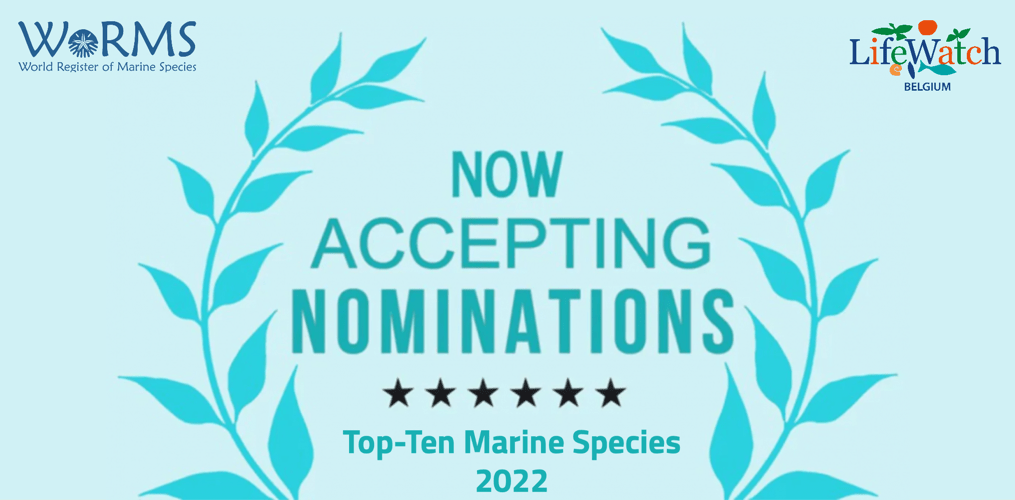
Once again, taxonomists have continued to publish many wonderful new species throughout last year. With the end of 2022 it is time to think about nominations for The WoRMS Top Ten Marine Species of 2022!
The aim of this list is to highlight the fascinating discoveries of the numerous new marine species being made every year, to the wider public. The 2021 winners span the tree of life, from coccolithophores to jellyfish to whales – see the full 2021 list here.
WoRMS (run by VLIZ, focal point of LifeWatch Belgium) plans to release the list to coincide with World Taxonomist Appreciation Day – 19 March! If you were unaware of this celebration of all the work that Taxonomists do, you can find more here, and here.
Please submit your nominations for your favorite species via this form. You are welcome to share this message with colleagues!
The species must have been published in 2022 (validly published between 01/01/2022 and 31/12/2022), must be marine, and can be a fossil species.
Please include the completed form and:
- A pdf of the paper in which the species was described.
- At least one good image of the species (with copyright and ownership information).
Good examples will have a compelling story behind the description, e.g. rare or unusual morphology, an interesting name, importance to society e.g for conservation/ medical importance/ toxic/ dangerous.
WoRMS also needs help deciding on the final list. Self-nomination for the decision panel is welcome. The decisions will be made via email discussion/vote.
Please send your nominations, offers to volunteer to join the decision committee, or questions to info@marinespecies.org with the subject ‘Top-Ten Marine Species’.
But hurry! The closing date for submission of nominations is Friday 3 February 2023 to enable the decision and preparation of the pages in time for 19 March 2023.